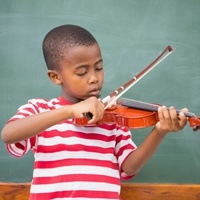
Music is not only soothing and entertaining; studies have shown that it can be used as a brain growth tool, especially in the tender development stages in children.
Music and the use of musical instruments stimulate parts of your brain such as the cerebellum, the cerebrum and the limbic system. These parts deal with emotion, balance and memory.
How music helps your child
Bilateral integration is the use of the two sides of the body together, as the two hemispheres of the brain work together. When a child is exposed to learning a musical instrument, bilateral integration is heightened as both sides of the body are in use while playing an instrument. Learning to play an instrument at an early age, helps encourage the brain to create new neurotransmitters and pathways. For example, learning the violin involves taking complicated tasks and breaking it down into small, easy-to-understand parts. This helps enhance problem-solving skills.
Visual perception refers to the brain's ability to make sense of what the eyes see. Good visual perceptual skills are important for everyday skills like reading, writing, completing puzzles, cutting, drawing, completing math problems, and getting dressed.
The mathematic cortex of the brain is developed at the age of four. Music helps stimulate this part of the brain; therefore, children exposed to music early on, are more likely to do better in maths. This is due to the rhythm and timing of music.
Certain instruments, (like percussion), helps children develop coordination and motor skills, as they require movement of the hands, arms, and feet. String and keyboard instruments, like the violin and piano, demand different actions from your right and left hands simultaneously, which also helps with motor skill development.
Make music a habit
Sing with your child. Encourage him to sing songs while doing normal things around the house. Make a song while cleaning, making up the bed or drying the dishes.
- If he shows interest in playing a musical instrument, encourage him with music lessons.
- Expose your child to different genres of music so that he can develop his own taste.
Good to know
- Music is good to help him fall asleep, but then it should be switched off, to allow him REM sleep (the restorative part of your sleep cycle).
- Beginning musical training before the age of seven has the greatest impact for brain development.
- Music training helps improve language and understanding skills. It uses rhythmic skills, which exercises the auditory system. This leads to stronger sound-to-meaning associations that are so essential when learning to read.
- (Aaqeelah Floris, Health24)




 Publications
Publications
 Partners
Partners














